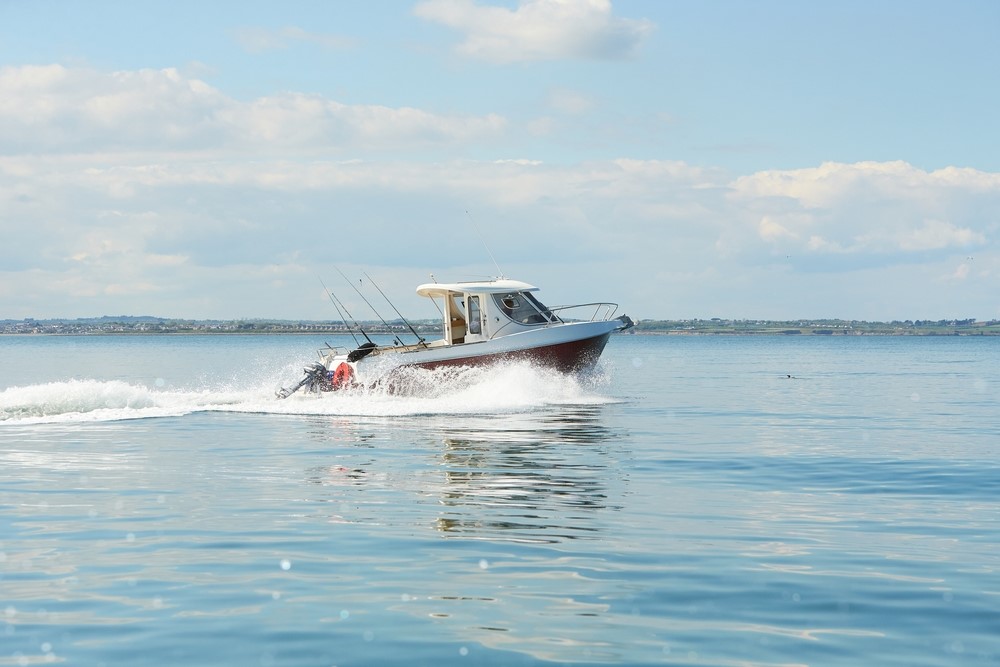Is There Electric Boating in Ontario?

Ontario has seen an increase in electric boat sales and charging infrastructure is being developed. Many marinas are equipped with standard electrical outlets for shore power, which can be used to charge electric boats.
Before you take your zero-emission boat out on Ontario’s waterways, don’t forget about boat insurance.
Western Financial Group, a 100% Canadian company, can help you navigate your boat, car, home, and business insurance during this period of economic uncertainty.
What you need to know about electric boats in Ontario:
Do I need a special license for an electric boat in Ontario?
In Ontario, you need a Pleasure Craft Operator Card (PCOC), which is also known as a boating license or other proof of competency to operate an electric boat, no matter its size. All Canadian boaters must have a PCOC card. It is illegal to operate a powered boat in Ontario without a boating license.
A PCOC is valid for life.
What is an electric boat?
No gas or diesel fuel is needed. An electric boat is powered by batteries (or battery) that store electrical energy, which is used to power the boat’s electric motor and propeller.
How many batteries does an electric boat need?
That depends on the type of electric boat, its size, and its power needs. Small electric boats might only need one battery, but large electric boats may need multiple batteries and energy storage capacity.
What boats can be electric?
- Tender boats (dinghies)
- Pontoon boats
- Rigid inflatable boats (RIBs)
- Electric outboards
- Electric fishing boats
- Electric passenger ferries
- Electric sailboats
- Electric canal boats
Do electric batteries add to the weight of my boat?
The weight of marine batteries varies, from under 20 pounds (9 kilograms) for lithium to over 100 pounds (45 kilograms) for large lead acid batteries.
Traditional lead-acid batteries add significant weight to your boat, which can impact on your boat’s overall performance and handling. An AGM (Absorbed Glass Mat) battery is a type of lead-acid battery designed for boats that’s spill-proof, vibration-resistant, and high performing.
Lightweight lithium-ion batteries add less weight to your boat. They’re used in smaller fishing boats, yachts, and electric outboards.
When do I need to change my boat’s battery?
You’ll need to have your electric boat’s battery changed every three to five years, but this can vary depending on the type of battery your boat uses, your boat maintenance, and your boat’s usage.
If your electric’s boat battery is older than five years, it’s likely time to replace it.
Where do I charge my electric boat in Ontario?
In Ontario, you can charge your electric boat using standard shore power (120V or 240V) at marinas or by using public charging stations, including fast chargers.
Voltari Marine Electric partnered with the City of Kingston to install Canada's first EV boat supercharging station at the city's Confederation Basin Marina.
BCI Marine and Aqua superPower are also working to expand the network of electric boat charging stations in Ontario.
Do electric boats blow up?
The risk of your electric boat blowing up is lower than a gasoline-driven boat because it doesn’t have a flammable fuel system.
What happens if my electric boat sinks?
An electric boat can sink just like any other boat. The risk of electrocution is considered low if your electric boat is built to safety standards. Experts say the electric battery's design, along with safety features, make it unlikely that you would be exposed to electrocution if your electric boat sinks.
Do you prefer a shark attack or electrocution?
Your electric boat has sunk in the ocean. Batteries that are submerged in sea water pose little danger of electrocution. What if a shark is near your submerged electric boat? It’s said that more people die from taking selfies than are killed by sharks, but you never know. It’s not a pleasant risk to face.
Can I get electrocuted on my electric boat?
Electrocution is a risk on any boat, including electric boats. Electric boats have built-in safety features and are designed to minimize the risk of electrocution, but it’s important to make sure they are properly maintained.
The pros and cons of electric boating in Ontario
Pros
- Zero emissions, no gasoline residue in the water
- No fuel spills
- Reduced noise
- Eco-friendly, reducing environmental impact on the water and shoreline
- Lower long-term operating costs
- Smooth acceleration, instant torque
Cons
- Still generally less powerful than gasoline boats
- Electric charging infrastructure may not be as widespread as refueling stations for gasoline-powered watercraft
- High initial cost
- Long charging time
- Limited range
- Battery problems
- Electrical failures
Ontario boat insurance for electric boats
The value of your electric boat can affect your Ontario boat insurance premium. Insurance policies for e-boats may differ from those for traditional boats. Electric boats may need specialized boat insurance coverage. Ask your Western Financial Group Ontario boat insurance expert.
Boat insurance is not mandatory in Canada, but your financial lender may ask that your boat be insured as a condition of financing. If you are docking at a marina or use a private boathouse in Ontario, you may be required to carry a specific amount of liability insurance and show proof of boat insurance. Many Ontario marinas require $3 million in liability insurance.
Boat insurance protects you, your loved ones, and your investment in your electric boat.



